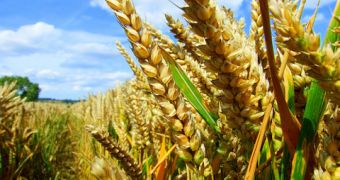With the Rio+20 Earth Summit well on its way, a new 525-page report has been released by the United Nations Environment Program.
The report shows that, but for someone taking responsibility and doing something about it, our natural world is prone to being destroyed by chemical pesticides and herbicides.
Although pesticides and herbicides are supposed to help us grow more crops, seeing how their main purpose is that of repelling certain insects and plants considered to be harmful to our agriculture, it seems that in the end they contribute to the destruction of the planet's ecosystems.
Thus, once they are sprayed on crops, they begin to make their way well into the soils, and from there on our groundwaters and our rivers are the limit.
According to Natural News, the Environmental Protection Agency in the US argues that, presently, around 70% of the polluting substances found in this nation's water sources are there because of uses and abuses of pesticides and herbicides.
Interestingly enough, in spite of the fact that they are supposed to help us boost our agriculture, these chemicals could eventually lead to our no longer being able to grow crops.
The are two main reasons why this could happen in the not-so-distant future.
First of all, it's common sense that soils “soaking” in pesticides and herbicides do not provide a proper ground for plants to develop.
Secondly, these chemicals also take their toll on whatever natural pollinators we have at our disposal (see France's attempt to rescue its bee population here), so even if we do succeed in growing some crops, odds are we'll be short of means to fertilize them.
The good news is that specialists are currently trying to promote the use of genetically modified crops as pesticides and herbicides.
The idea is quite simple: instead of using chemicals, we can use plants that have been genetically altered so as to repel whatever it is that we don't want “lurking” around our crops.
Hopefully, a future without pesticides and herbicides is soon to come our way.

 14 DAY TRIAL //
14 DAY TRIAL //